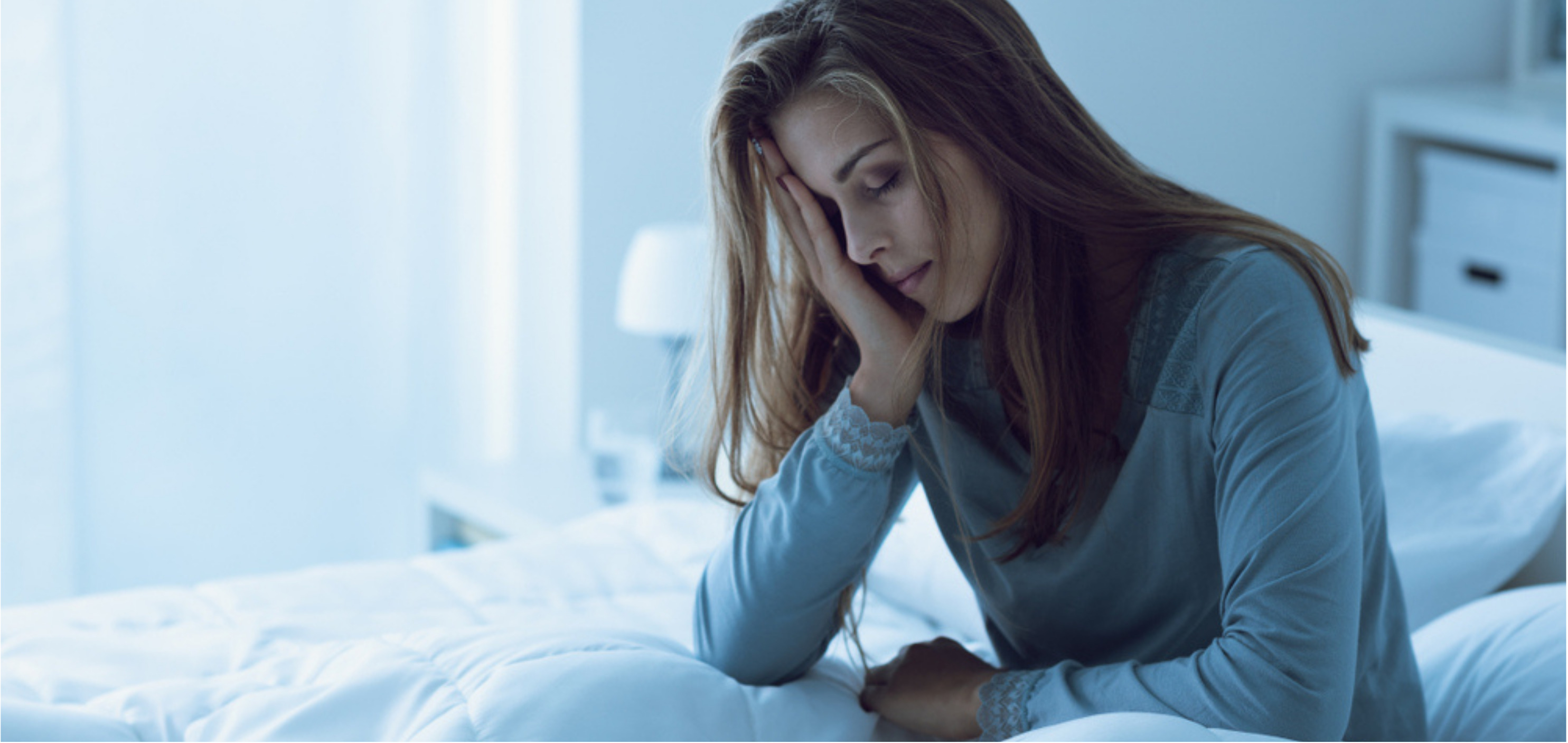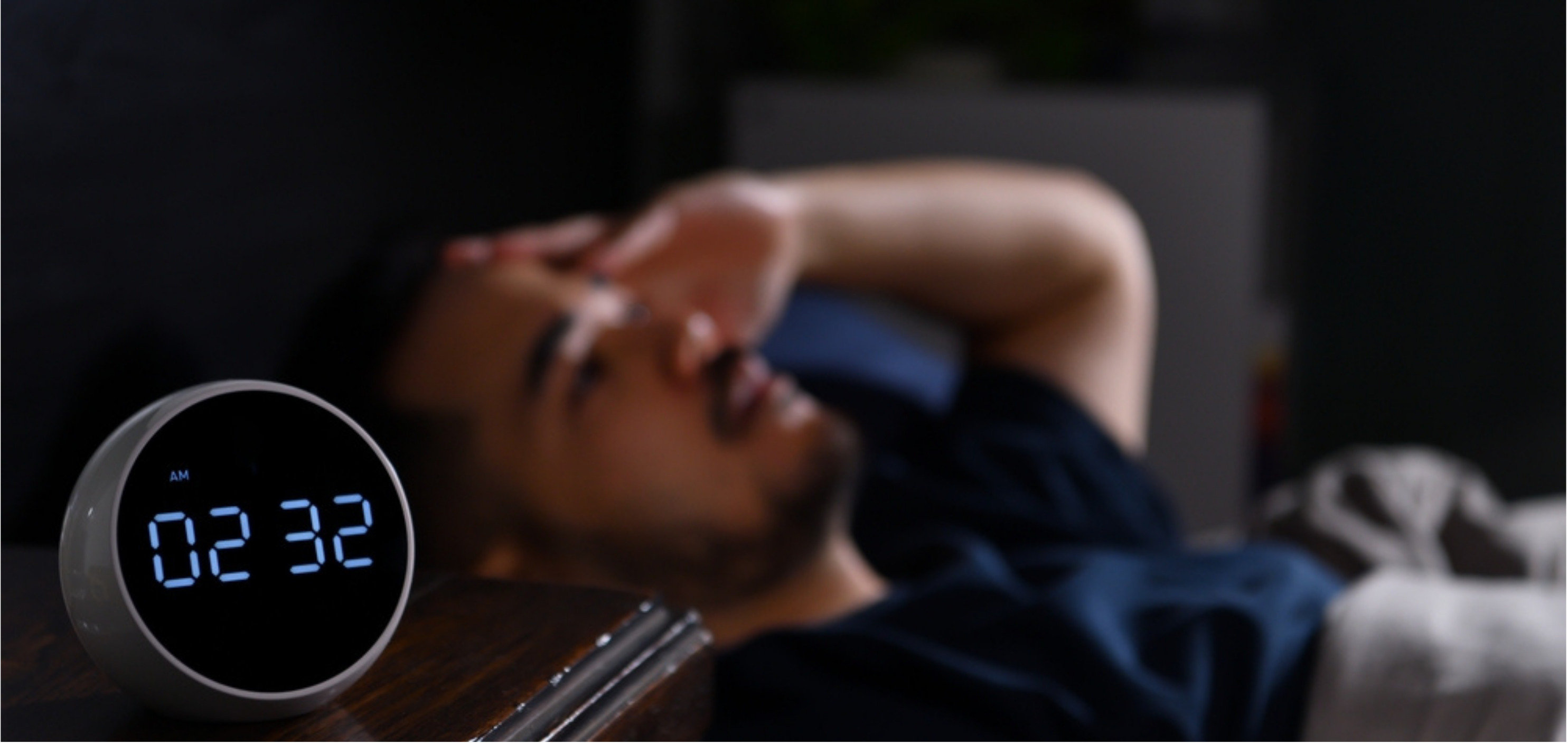Insomnia and Addiction | Symptoms and Treatment Options
Sleep is supposed to be a sanctuary, a chance for your body and mind to recharge. But when you have insomnia, it can turn your nights into a desperate battle and cloud your days in a fog of exhaustion. Many people turn to drugs or alcohol to get some rest, only to find addiction setting in and worsening their insomnia symptoms. Addiction thrives in the sleepless hours of insomnia, with the two conditions intensifying each other. If you are looking for rest and relief, Recovery Lighthouse can help you reclaim your nights, your days and your future.
What is insomnia?
Insomnia is a widespread sleep disorder that affects around a third of all people in the UK. Sometimes, it is about never quite falling asleep (onset insomnia), while other times, it is waking up repeatedly or feeling like sleep never truly gives you the rest you need (maintenance insomnia).
In either case, there are two main types of insomnia:
1. Acute insomnia
Acute insomnia is the short-term version, often sparked by a big life change, a burst of stress or even a noisy neighbour disrupting your usual sleep routine.
2. Chronic insomnia
This is the long-haul variety which is defined as exhibiting insomnia symptoms at least three times a week for three months or more. Chronic insomnia often ties into deeper health or emotional challenges that refuse to be ignored, including addiction.
The effects of insomnia can ripple far beyond the bedroom as sleepless nights create days of exhaustion, irritability and foggy thinking. Over time, insomnia can lead to more serious issues like mental health struggles, weight loss and even a weakened immune system.
What causes insomnia?
Insomnia doesn’t happen in a vacuum but is usually a tangled mix of factors that stop you from getting your precious shut-eye. Some of these factors include:
Do I have insomnia?
If you’re not sure whether your sleep struggles are “normal”, here are some questions which could point to the signs of insomnia:
- Do you find it hard to fall asleep, even when you’re tired?
- Do you wake up in the middle of the night and struggle to get back to sleep?
- Do you feel exhausted in the morning, no matter how long you’ve been in bed?
- Are you distracted, forgetful or struggling to focus during the day because of poor sleep?
- Do you rely on caffeine, naps or other stimulants to make it through the day?
- Do stress, worry or racing thoughts keep you tossing and turning at night?
- Have your sleep issues lasted for weeks or even months?
If you answered yes to these questions, you may very well have insomnia.
How do insomnia and addiction link?
Insomnia and addiction have a way of weaving into each other’s chaos, creating a sleepless storm of dependency and desperation. To untangle their connection, we need to dive into the ways they feed off one another:
Substances as a false sleep solution
When you’re desperate for rest, substances like alcohol or sedatives might seem like the perfect lullaby. But while they might knock you out for a while, they disrupt your natural sleep cycle, robbing you of deep, restorative rest. What starts as a way to sleep quickly can then become a new problem as you become addicted.
Wired and wide awake
Stimulants like cocaine or meth can hijack your entire system, turning nights into jittery marathons of racing thoughts and restless energy. Even when the high fades, comedowns can leave you staring at the ceiling, chasing sleep that refuses to come.
The weight of addiction
Addiction has a huge impact on your mental and emotional health and the shame, guilt and stress can play on your mind all night. Worries about your behaviour, relationships, money and even where you will get your next dose can all make it incredibly hard to fall asleep and stay asleep.
Insomnia during withdrawal
Withdrawal is an emotional and mental battlefield and insomnia is one of the most common symptoms. Restlessness, anxiety and the sheer discomfort of detox can make nights unbearable, often pushing you toward relapse to escape the misery.
However it begins, once insomnia and addiction have taken hold, the sleepless nights fuel cravings, impair judgment and weaken your resolve while substance use further disrupts your ability to rest and recover. It becomes an exhausting spiral that drains your strength and seems to keep recovery from both issues constantly out of reach.
Commonly co-occurring addiction and insomnia issues
Insomnia co-exists with a number of both substance abuse disorders and behavioural addictions. Some of the most common include:
Insomnia and sleeping pill addiction
Sleeping pills can seem like a magic fix for insomnia but if you begin to rely solely on medicine to sleep, there is a high chance of becoming addicted.
Insomnia and drug addiction
Various forms of drug addiction can hijack your body’s natural rhythms. Stimulants can keep you awake for days while downers can leave you groggy rather than restless. Marijuana addiction and insomnia often co-exist as regular marijuana use can affect your REM sleep with cannabis addiction leaving many people chronically exhausted.
Insomnia and alcohol addiction
A glass of wine before bed might seem like the perfect way to unwind; getting quality, uninterrupted sleep when you are addicted to alcohol is very tough.
Insomnia and internet addiction
The constant blue light exposure and the rabbit hole of notifications can keep you up late and keep your mind awake long after you put the phone down.
Treatment options for addiction and insomnia
At Recovery Lighthouse, we know how deeply addiction and insomnia can affect one another. While we don’t treat insomnia itself, our rehab treatment programme can help manage insomnia symptoms while holistically addressing addiction.
At Recovery Lighthouse, you will be able to benefit from:
- Medical detox
- Individual and group therapy
- Behavioural therapies
- Family therapy
- Yoga, meditation, sound and art therapy
- Extensive aftercare planning with free weekly group therapy for a year and a lifelong Alumni Network
Get help for insomnia and addiction today
What if tonight could be the start of something different – where the weight of addiction is lifted, and peaceful sleep is not just a dream? At Recovery Lighthouse, we can help you turn sleepless nights and substance struggles into a future filled with rest and hope. Contact us today to find out how you can put insomnia and addiction firmly behind you.
Frequently Asked Questions
(Click here to see works cited)
- NHS. “Insomnia.” NHS inform, 3 May 2023, https://www.nhsinform.scot/illnesses-and-conditions/mental-health/insomnia/. Accessed 10 December 2024.
- Sleep Foundation. “Insomnia: Symptoms, Causes, and Treatments.” Sleep Foundation, 16 January 2024, https://www.sleepfoundation.org/insomnia. Accessed 10 December 2024.
- Villalobos, Nick. “Insomnia: Causes, Symptoms, Types, and More.” Healthline, 19 January 2022, https://www.healthline.com/health/insomnia. Accessed 10 December 2024.
- UK Rehab. “Dual Diagnosis | Co-Occurring Disorders.” UK Rehab, https://www.uk-rehab.com/mental-health/dual-diagonosis/. Accessed 10 December 2024.
- UK Rehab. “Insomnia and Addiction | Mental Health and Addiction.” UK Rehab, https://www.uk-rehab.com/mental-health/insomnia-and-addiction/. Accessed 10 December 2024.


